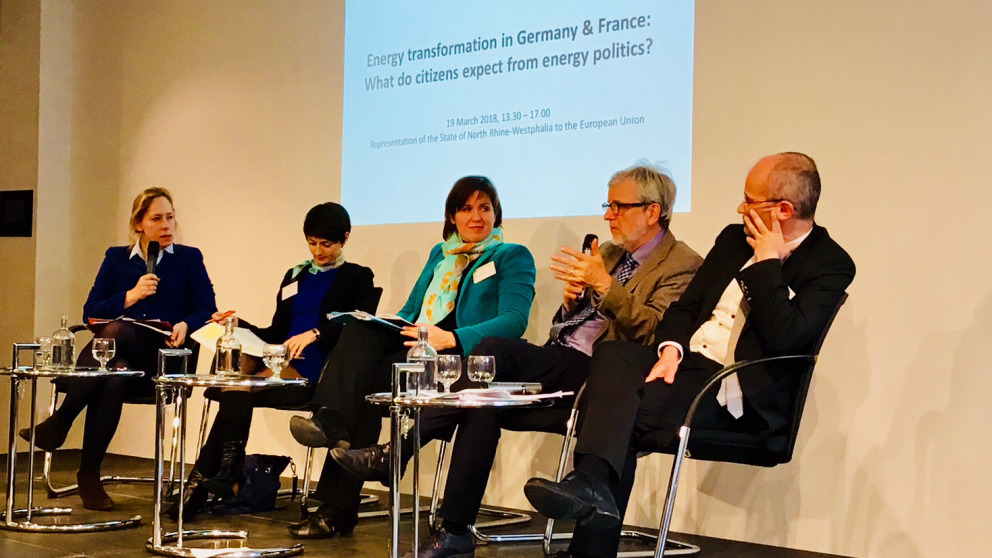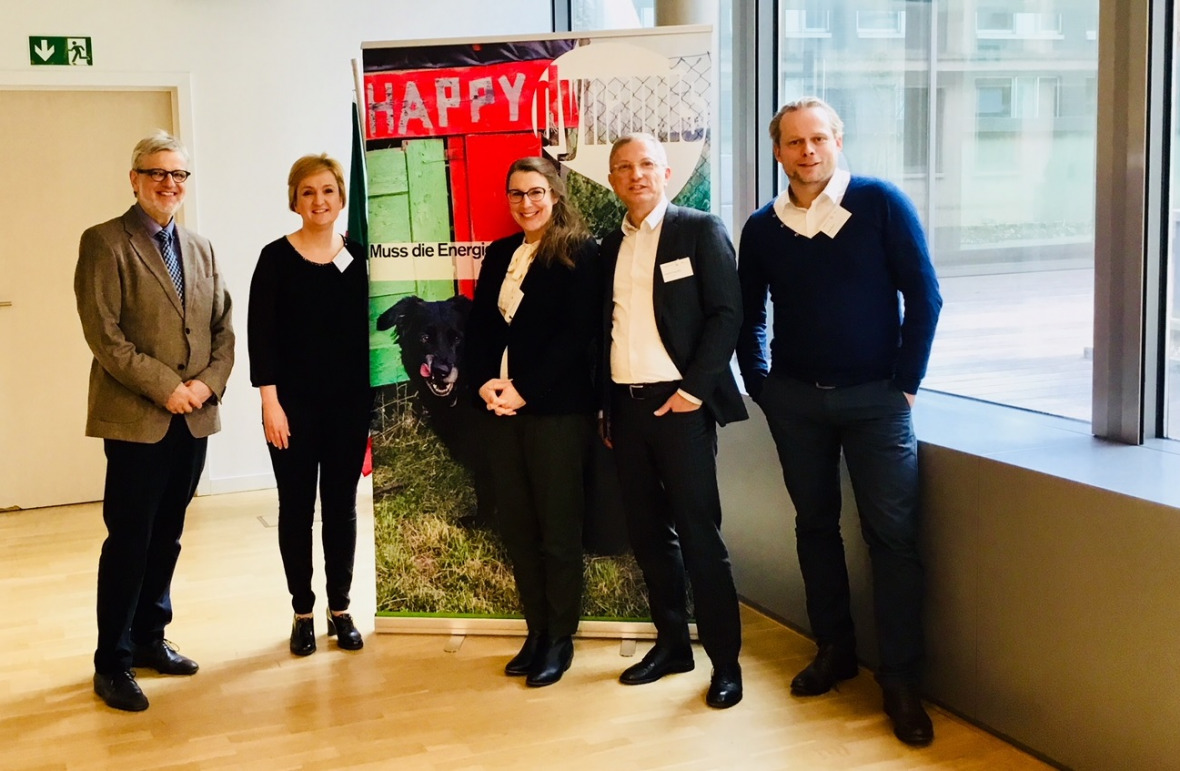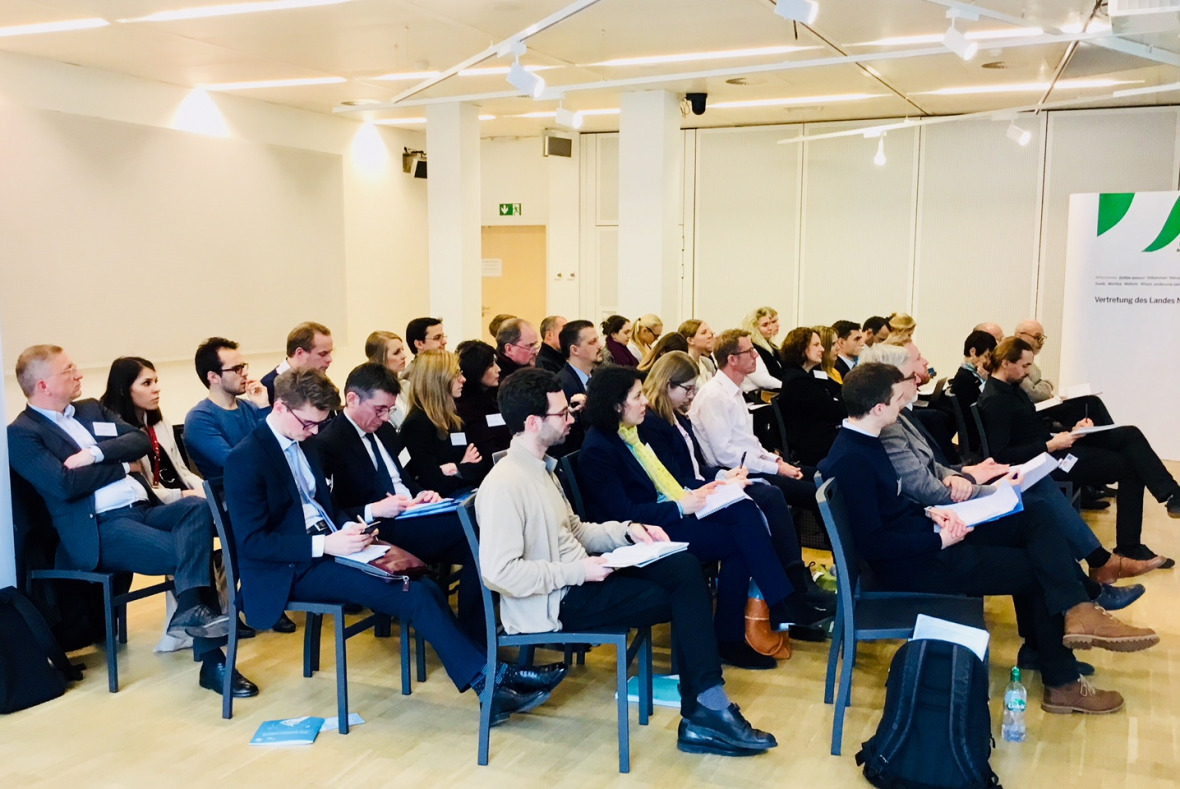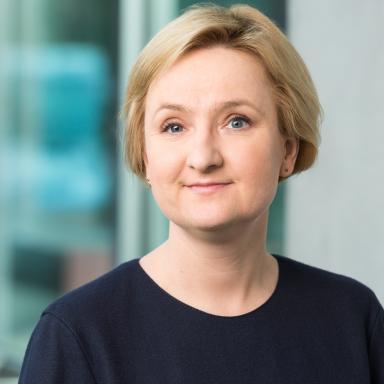Climate, Costs, Participation: Heinrich Böll Foundation France and IASS Reveal what Citizens Want from the Energy Transition at Event in Brussels
06.04.2018
What do citizens in France and Germany see as the key criteria for a fair energy transition? The Heinrich Böll Foundation France and the IASS presented two studies to 50 stakeholders from the policy community, business, science and civil society at an event in Brussels.

In November 2016 the European Commission presented its proposals for legislation to ensure “Clean Energy for All Europeans”. This launched a discussion process that will culminate in the adoption by the European Parliament and the European Council of a new legal framework for a common energy policy from 2020 on. The proposed legislation puts consumers first, recognising that it’s important that they feel included in the energy transition and benefit from it in tangible ways.
But what would a fair energy transition actually entail in the eyes of ordinary citizens? Are there opportunities for them to participate in the energy transition – and do they want to? What is their stance on the new technologies mentioned in the Commission’s proposals, including smart meters? The Heinrich Böll Foundation France and the IASS explored these and other questions in two empirical studies. At the event “The Energy Transition in Germany and France: What are Citizens Demanding of Energy Policy?” on 19 March 2018, the researchers discussed their findings at the Representation of the State of North Rhine-Westphalia to the European Union.
Germans in favour of Energiewende, but critical of implementation process
The Social Sustainability Barometer for the German Energiewende, published by the IASS in the context of the dynamis partnership and in cooperation with the Kopernikus project ENavi, is based on a representative survey of over 7,500 households in Germany. The findings of the Barometer show that a majority of Germans support the goals of the energy transition, but are critical of the way it is being implemented. They object in particular to the high costs of the Energiewende and what they see as their unfair distribution. They would like those who use more energy to pay more, and they believe that the state should assume more responsibility for providing the entire population with a secure supply of energy. In addition, they think it’s important that citizens are involved at an early stage in processes relating to the energy transition such as the planning of wind parks. When it comes to investing in new technologies like smart heating systems, Germans are, however, rather reluctant.

French favour shift away from nuclear power
The second study, Le rapport des Français à l´énergie, is based on a representative survey of 1,000 French citizens on French energy policy conducted by the Heinrich Böll Foundation. As in Germany, 89 per cent of respondents see energy policy as “important or very important” and believe that too much energy is being wasted. The majority think that France is too dependent on fossil fuels and nuclear energy. This finding came as a surprise to researchers, since nuclear power plays a much bigger role in France than in Germany. Most respondents (63%) see the energy transition as an opportunity, and only 11 per cent think that it harbours risks. Similar to their German neighbours, French citizens come out strongly in favour of investments in renewable energies and demand more opportunities for citizens to participate in energy generation.
In matters of energy policy, the French place more trust in civil society organisations and local energy producers than they do in large energy concerns or the Ministry for an Ecological and Solidary Transition responsible for energy issues. Many respondents believe that Germany is setting an example for other countries with its energy transition. And they would welcome closer cooperation with the European Union and Germany in energy policy questions.

Surveys in other EU countries important for informed discussion
The subsequent panel discussion focussed on the significance of the findings for the wider European energy debate. The studies show that in two major European economies there is a groundswell of support for a shift away from fossil-based and nuclear energy and towards renewables. But opinions are divided on the path to implementation, which many citizens see as too complex. Public confidence in decision-makers needs to be strengthened and citizens must be encouraged to take an active part in the energy transition. This is the only way of ensuring that the perceived gap between the clean-energy objective and its practical implementation will not become even wider. The participants in the discussion agreed that for the sake of an informed discussion on Europe’s future energy policy, similar empirical studies need to be carried out for all EU member states.
